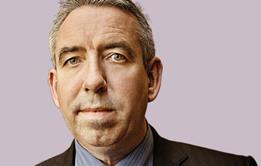Duncan Selbie’s view that the NHS has done little to improve the public’s health over the last 38 years will upset some.
It will also surprise many. The new Public Health England chief executive has a reputation for being a thoughtful operator, not fond of broadcasting his opinions. His new job requires him to adopt a higher profile, but few would have predicted his first interview to contain repeated attacks on the NHS’s stewardship of public health.
So, is Mr Selbie correct in his disparagement of the NHS and his view that local government will make a better fist of reducing inequality and boosting life expectancy?
Let us examine the case against the NHS. Over the last two decades Mr Selbie has been the chief executive of a mental health trust, an acute trust and a health authority, as well as being a Department of Health director general. He will know government rarely stresses about public health performance issues - when compared to, say, hospital waiting times or healthcare acquired infections. He will also know that, partly as a result, public health issues rarely creep onto the must-do lists of those running major provider organisations. In summary, he will understand public health has been the poor relation in the NHS family.
Despite this, there is little doubt NHS immunisation programmes have made a major contribution to the public’s health. Screening programmes too have had a positive impact, although their benefits are more ambiguous than previously thought. Some point to the ban on smoking in public places, but the NHS can claim little direct involvement in that. Fluoridisation remains controversial and patchy. There has been some important work on resource allocation - although regular debates about perceived unfairness shows this is still far from finished work.
There is also, of course, the significant - though often unrewarded and unrecognised - role GPs and community healthcare staff have on the behaviours and attitudes of the public.
Mr Selbie may be laying it on a bit thick to say the NHS’s attempts to improve health and reduce illness “haven’t worked”, but it is reasonable to suggest the NHS’s contribution to public health comes a distant second to its record in treating illness.
Public health professionals will also complain - with some reason - that their work has been underfunded for most of the last four decades. But the profession is not blameless in its failure to win more money or influence. Many local authority chief executives were shocked some public health directors appeared to be more concerned about who they would report to rather than what opportunities their new roles might give them. The sensitivity about status is a sign of a profession which has become marginalised within the NHS and, in some cases, has adopted a prickly isolationism as a result.
There is no doubting local government’s enthusiasm to pick up the public health baton. Combining traditional public health interventions with action on housing, employment and education may deliver the benefits of an integrated approach the NHS would have found it much harder to assemble. There is also reason to believe public health should enjoy a higher status in the council chamber than the NHS boardroom.
But two major issues remain to be resolved. Will local authorities have the money to realise the synergies joint programmes could release - especially after what is likely to be another brutal public spending round? Given that context, it is also necessary to ask what happens when a council decides public health, or an aspect such as sexual health, is not a priority. Local authorities are democratic organisations and do not expect to have their decisions second-guessed.
Finally it will be down to Public Health England to ensure responsibility is not simply “dumped” on local government, allowing the NHS to spend even more time focusing on the preoccupations highlighted by the newly outspoken Mr Selbie.
Topics
Selbie: NHS has not 'done much good'

The new chief executive of Public Health England has said the NHS’s effort to improve health and reduce illness over the past four decades “hasn’t worked and has not been sufficient”.
- 1
- 2
 Currently
reading
Currently
reading
Forty wasted years?
































11 Readers' comments